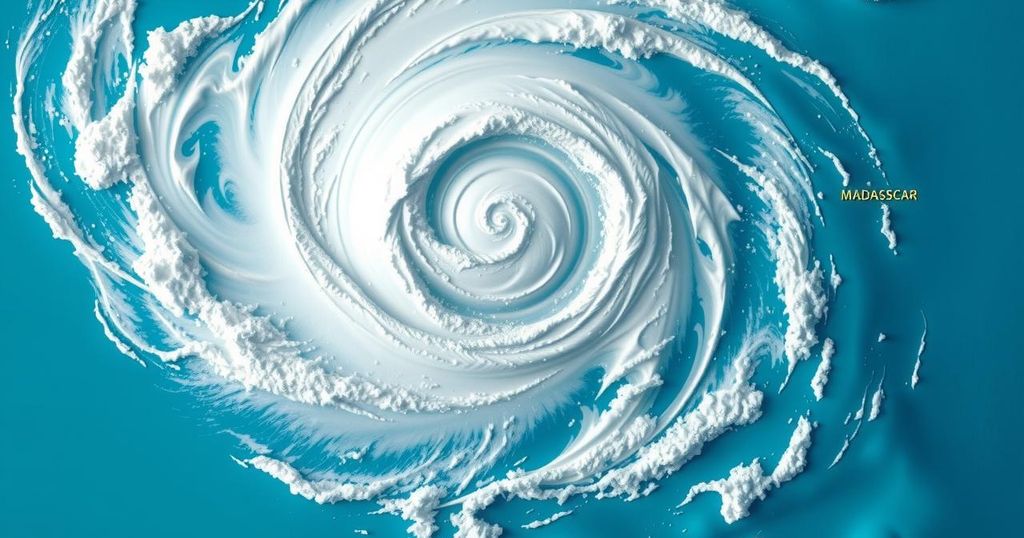Tropical Storm Jude affected nearly 340,000 people across Madagascar, Malawi, and Mozambique, displacing many and causing extensive damage. Humanitarian responses include government-led efforts for search and rescue, aid distribution, and addressing potential health outbreaks. The situation remains critical, particularly regarding infrastructure and accessibility challenges for assistance delivery.
Tropical Storm Jude has adversely affected nearly 340,000 individuals across Madagascar, Malawi, and Mozambique, prompting significant displacement and destruction between 6 and 16 March. With notable damage to infrastructure and agriculture, humanitarian partners have engaged in supporting government-led response efforts, including search and rescue operations and activating emergency operation centers. Although the rains may benefit agriculture in drought-recovering countries, there are pressing concerns regarding a potential upsurge in cholera cases, particularly in Malawi and Mozambique.
In Madagascar, approximately 15,000 individuals were impacted, particularly in the Atsimo Andrefana Region after the storm’s second landfall on 15 March, resulting in one death and displacing over 10,500 people across 24 temporary sites. Much of the destruction arose from strong winds, severely affecting structural integrity in towns and cities. The storm damaged or destroyed thousands of homes and disrupted education, leaving approximately 48,000 students out of school due to the destruction of classrooms. Several districts remain inaccessible, complicating assistance delivery to afflicted areas.
Malawi reported that nearly 20,650 individuals were affected, with three missing and nearly 5,000 displaced during the storm from 10 to 12 March. The Department of Disaster Management Affairs indicated significant impacts across nine councils, with the Phalombe District experiencing the highest numbers of affected individuals. Heavy rainfall measurements were noted, further exacerbating the challenges posed by the cyclone in the region.
In Mozambique, Tropical Storm Jude caused significant damage after making landfall in Nampula Province on 10 March. Reports indicate that over 302,000 individuals were affected, with 16 fatalities, and extensive damage to housing and infrastructure, including health units, schools, and water systems. The risk of flooding was heightened, aggravating existing cholera outbreaks in multiple districts and challenging recovery efforts.
Humanitarian response efforts are underway in Madagascar, where the government, alongside partners, is providing essential services, including food, water, and medical support. In Malawi, the government has amplified sensitization through media channels, providing relief assistance and cash aid to displaced individuals. A coordinated response is also ongoing in Mozambique to address the exacerbated humanitarian situation, with emergency operations activated at various levels to facilitate a comprehensive response and resource provision. OCHA is mobilizing efforts to support these initiatives as preliminary assessments reveal insufficient resource stock levels to meet the burgeoning needs of the affected populations.
In summary, Tropical Storm Jude has resulted in extensive humanitarian challenges across Southern Africa, particularly impacting Madagascar, Malawi, and Mozambique. The storm has caused significant devastation, leading to large-scale displacement, critical infrastructure damage, and concerns regarding health crises such as cholera outbreaks. Humanitarian partners are actively engaged in relief efforts, emphasizing the urgent need for coordinated responses and resource mobilization to aid the affected populations across the region.
Original Source: reliefweb.int




